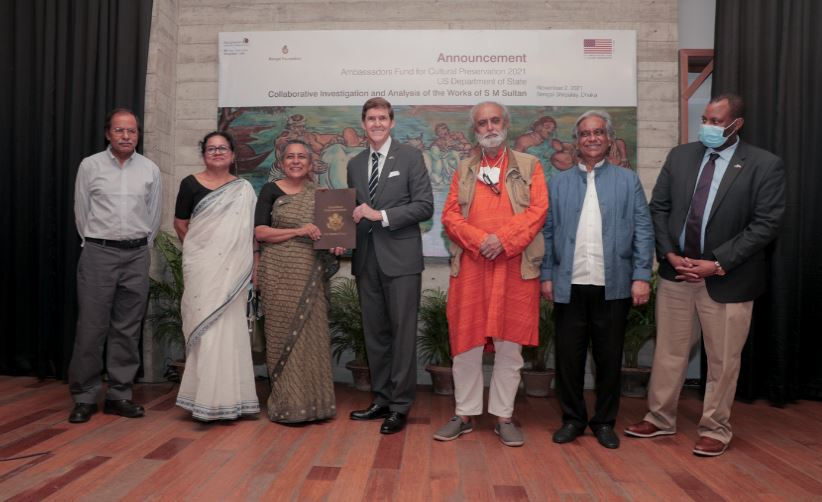
DHAKA, Nov 2, 2021 (BSS) - The United States (US) has funded study and
restoration of the Bangladesh's legendary artist SM Sultan's paintings
marking Bangladesh's golden jubilee and 20 years of the US Ambassadors Fund
for Cultural Preservation.
US Ambassador to Bangladesh Earl Miller and Director General of Bangla
Academy Mohammad Nurul Huda jointly inaugurated the US-funded cultural
preservation project on SM Sultan's artworks at Bengal Shilpalay in Dhanmondi
today, a US embassy press release said here.
Ambassador Miller presented a ceremonial plaque to the Bengal Foundation's
Director General Luva Nahid Chowdhury to formally inaugurate the project and
toured the SM Sultan exhibition at the gallery.
The three-year initiative, funded through the US government's prestigious
Ambassadors Fund for Cultural Preservation (AFCP), supports study, analysis,
and restoration of the largest collection of Sultan's paintings and will
train young Bangladeshi conservation professionals on sustainable
conservation techniques, methodologies, and restoration models.
In the past 20 years, the United States has supported 12 AFCP projects
totaling over US $870,000 to preserve and restore Bangladeshi cultural
heritage and patrimony, including restoring the 17th-century Mughal Hammam
Khana in the Lalbagh Fort Complex; working with Varendra Research Museum to
make its collection more accessible to the public and documenting and
preserving Baul song and cultural traditions, Jamdani weaving methods, and a
2,000-year-old metal casting technique.
The AFCP 2022 call for cultural preservation proposals is now open, with a
deadline of December 1, 2021.
Since its establishment in 2001, the United States has supported over 1,000
AFCP preservation projects in 130 countries reflecting American values and
demonstrating US friendship.
The AFCP projects support post-disaster and post-conflict recovery, create
economic opportunities and build mutual understanding and typically involve
expert local partners and promote the use of traditional materials and
methods.